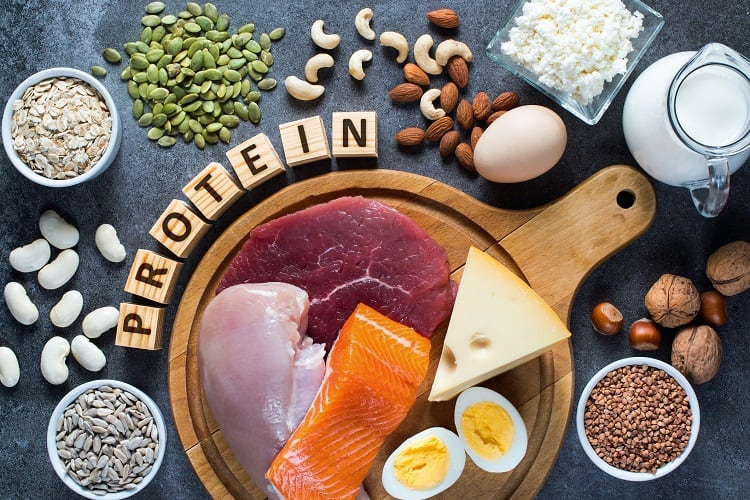The Ultimate Diet Guide
Expert tips and advice for achieving your health and fitness goals.
Protein-Packed Plates: Fuel Your Life One Bite at a Time
Discover delicious, protein-packed recipes that energize your day and elevate your meals—fuel your life one bite at a time!
Top 10 Protein Sources for a Balanced Diet
Maintaining a balanced diet is crucial for optimal health, and incorporating protein sources is an essential part of that equation. Proteins are the building blocks of our bodies, playing vital roles in muscle repair, immune function, and hormone production. Here are the top 10 protein sources that can help enhance your diet:
- Chicken Breast: A lean source of high-quality protein, packed with essential nutrients.
- Eggs: Rich in protein and loaded with vitamins, eggs are incredibly versatile.
- Greek Yogurt: Packed with protein, this dairy option also provides probiotics for gut health.
- Fish: Varieties like salmon and tuna are high in protein and omega-3 fatty acids.
- Quinoa: A complete plant protein that is gluten-free and high in fiber.
- Lentils: Great for vegetarians, lentils are a fantastic source of protein and fiber.
- Chickpeas: Also known as garbanzo beans, these legumes are high in protein and versatile.
- Nuts and Seeds: Almonds, chia seeds, and flaxseeds not only provide protein but also healthy fats.
- Tofu: A great source of protein for vegans, tofu is versatile and can absorb flavors well.
- Lean Beef: Provides high-quality protein along with important micronutrients like iron.

How Protein Boosts Your Energy: Science Explained
Protein plays a crucial role in boosting your energy levels by providing your body with the necessary building blocks to create essential hormones and enzymes. When you consume protein, it is broken down into amino acids, which are then used to produce neurotransmitters that regulate mood and energy. For instance, the amino acid tyrosine is vital for the production of dopamine, a neurotransmitter that promotes feelings of motivation and alertness. This makes consuming an adequate amount of protein essential for maintaining not just physical energy, but also mental clarity.
Moreover, protein has a unique ability to stabilize blood sugar levels, preventing the sharp spikes and dips in energy commonly associated with high-carbohydrate diets. When paired with healthy fats and carbohydrates, protein can prolong feelings of satiety and energy. Instead of experiencing the familiar post-lunch slump, your body will benefit from a steady release of energy throughout the day, helping you maintain productivity and focus. Incorporating protein-rich foods like lean meats, legumes, and dairy into your meals can significantly enhance your overall energy management.
Are You Getting Enough Protein? Signs and Solutions
Are you getting enough protein in your diet? Protein is an essential macronutrient that plays a crucial role in building and repairing tissues, making enzymes and hormones, and supporting overall bodily functions. If you're not consuming sufficient protein, your body may display several signs that indicate a deficiency. Common symptoms include fatigue, muscle weakness, frequent infections, and hair loss. If you've noticed these warning signals, it might be time to assess your protein intake and make necessary adjustments to your diet.
To ensure you're meeting your protein needs, consider incorporating a variety of protein-rich foods into your meals. Solutions include adding sources such as lean meats, fish, eggs, dairy products, legumes, and nuts. For those following a vegetarian or vegan diet, options like quinoa, chickpeas, and tofu can help boost your protein intake. Aim for a balanced distribution of protein throughout the day, and don't hesitate to consult a nutritionist for personalized advice. Remember, getting enough protein is vital for your health and well-being!